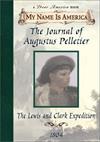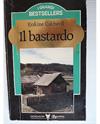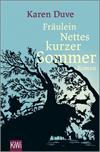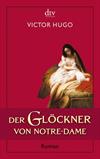
The Old Wives' Tale (Penguin Classics)
1 journaler for this copy...
Journal Entry 1 by Apechild from York, North Yorkshire United Kingdom on Wednesday, September 5, 2018
Another second hand buy from the Minster Bookshop in York yesterday.
This was epic, a whole lifetime, so poignantly and at times written with humour. I loved it. Although what an odd note to end the tale on. The final paragraph is about the really old dog that can't be bothered to get up for its dinner, then thinks, oh, maybe I will go give it a quick sniff and see if it's worth eating.
This book really is about life, literally I guess at it tells the story of Constance and Sophia, two sisters from the midlands, who did grow to be old wives. The title doesn't necessarily sound so exciting, and maybe not so much happens, but I found this to be such an engrossing read. And I feel like he captured the two characters so well in his writing and how they changed with age and experience. It's bizarre to think how the two old women I was reading about at the end were the young impulsive and passionate young girls at the very start. How much changes over a lifetime. There's a poignant bit towards the end when Sophia goes to see her estranged and dying (turns out he's dead) husband, and after seeing the corpse, falls into a melancholia over life: "...What affected her was that he had once been young, and that he had grown old, and was now dead. That was all. Youth and vigour had come to that. Youth and vigour always came to that." (p 577) There's much hinted at about what is important in life - is it worrying over things or being too tied to things, such as Constance with her house; or poor Sophia who becomes so obessed with earning money and being careful with money that she ends up with a fortune, but has never been away from her business more than a couple of days, has no real friends or family and can she say she really lived in those 30 years in France?
It starts out so humourful and carefree, as we do in youth, assuming great things will come and we have potential, but everything is based on chance. Sophia and Constance are the daughters of a very sucessful draper in the mid 1800s. One of the first scenes is of Sophia, the more spirited of the two, sneakily pulling out one of the assistant draper (Mr Povey)'s teeth - I just love this. Turns out it wasn't the tooth that was causing him pain either. He he. Then the little details such as a circus elephant that gets everyone excited and when it dies, the whole town turns out virtually to cut bits off the corpse as keepsakes.
Constance is happy to work in the family shop and that her future will be there. Sophia needs to break away and aims to go in to teaching (lucky she didn't, as her mentor ends up relying on charity to support her at the end), but then an intense crush on a travelling salesman, Gerald Scales, sees her running off with him. The two sisters then don't see each other or communicate for the next thirty years. Perhaps this it the tragedy. All that lost time, all those years. Their stories are told seperately, first Constance at the shop with her husband, Mr Povey, and son Cyril. Then Sophia who, after being abandoned by her husband, runs a boarding house in France. Both stories feature executions of men who killed their women. It's curious. In both cases no one seems that bothered that the woman's life has been lost - it just seems to get in the way of things. In the English case, it's Mr Povey's cousin who has killed his wife and ends up at the end of a rope. There's a petition to save him, in vain, then after he has died, there is a massive protest march in town referring to his death as a murder. Hang on, didn't this guy KILL his wife?! In France the man killed the woman over jewels as I remember. His execution, by guillotine of course, is a national entertainment event and crowds travel to the town from all over France. Again, somehow farcical.
So much in this book about lives. I loved it. It also makes me a little melancholic and reflective over the nature of living.
This book really is about life, literally I guess at it tells the story of Constance and Sophia, two sisters from the midlands, who did grow to be old wives. The title doesn't necessarily sound so exciting, and maybe not so much happens, but I found this to be such an engrossing read. And I feel like he captured the two characters so well in his writing and how they changed with age and experience. It's bizarre to think how the two old women I was reading about at the end were the young impulsive and passionate young girls at the very start. How much changes over a lifetime. There's a poignant bit towards the end when Sophia goes to see her estranged and dying (turns out he's dead) husband, and after seeing the corpse, falls into a melancholia over life: "...What affected her was that he had once been young, and that he had grown old, and was now dead. That was all. Youth and vigour had come to that. Youth and vigour always came to that." (p 577) There's much hinted at about what is important in life - is it worrying over things or being too tied to things, such as Constance with her house; or poor Sophia who becomes so obessed with earning money and being careful with money that she ends up with a fortune, but has never been away from her business more than a couple of days, has no real friends or family and can she say she really lived in those 30 years in France?
It starts out so humourful and carefree, as we do in youth, assuming great things will come and we have potential, but everything is based on chance. Sophia and Constance are the daughters of a very sucessful draper in the mid 1800s. One of the first scenes is of Sophia, the more spirited of the two, sneakily pulling out one of the assistant draper (Mr Povey)'s teeth - I just love this. Turns out it wasn't the tooth that was causing him pain either. He he. Then the little details such as a circus elephant that gets everyone excited and when it dies, the whole town turns out virtually to cut bits off the corpse as keepsakes.
Constance is happy to work in the family shop and that her future will be there. Sophia needs to break away and aims to go in to teaching (lucky she didn't, as her mentor ends up relying on charity to support her at the end), but then an intense crush on a travelling salesman, Gerald Scales, sees her running off with him. The two sisters then don't see each other or communicate for the next thirty years. Perhaps this it the tragedy. All that lost time, all those years. Their stories are told seperately, first Constance at the shop with her husband, Mr Povey, and son Cyril. Then Sophia who, after being abandoned by her husband, runs a boarding house in France. Both stories feature executions of men who killed their women. It's curious. In both cases no one seems that bothered that the woman's life has been lost - it just seems to get in the way of things. In the English case, it's Mr Povey's cousin who has killed his wife and ends up at the end of a rope. There's a petition to save him, in vain, then after he has died, there is a massive protest march in town referring to his death as a murder. Hang on, didn't this guy KILL his wife?! In France the man killed the woman over jewels as I remember. His execution, by guillotine of course, is a national entertainment event and crowds travel to the town from all over France. Again, somehow farcical.
So much in this book about lives. I loved it. It also makes me a little melancholic and reflective over the nature of living.








